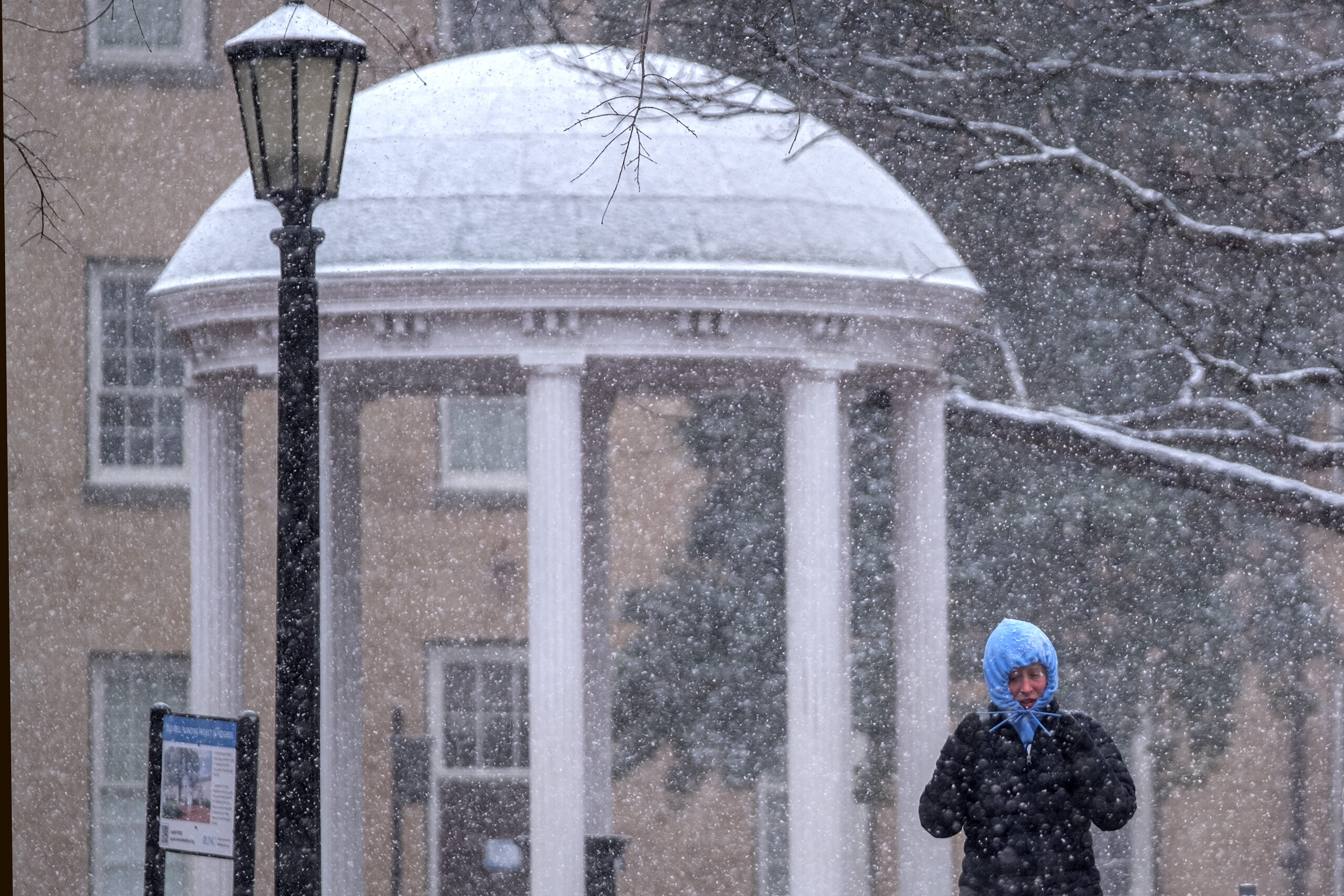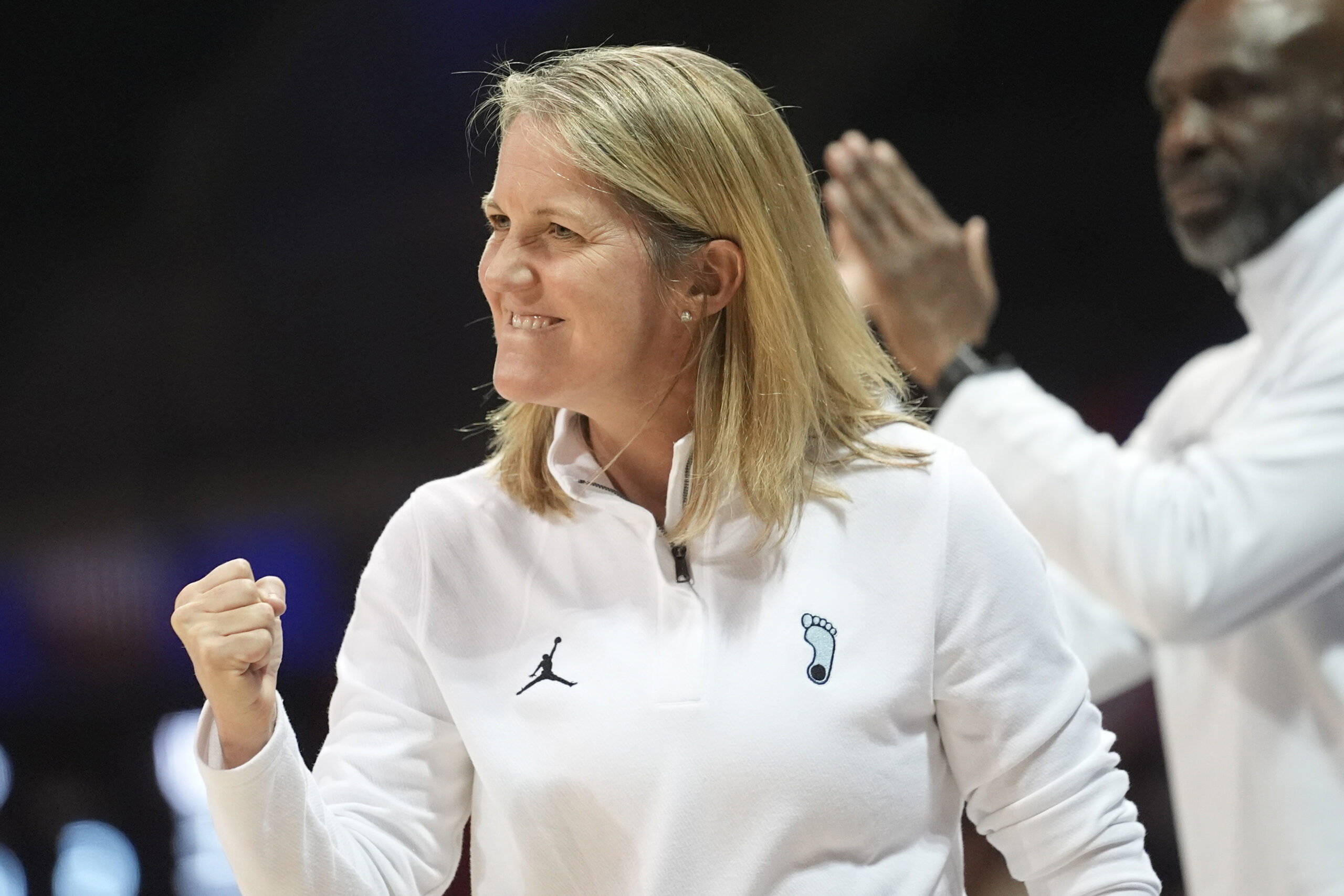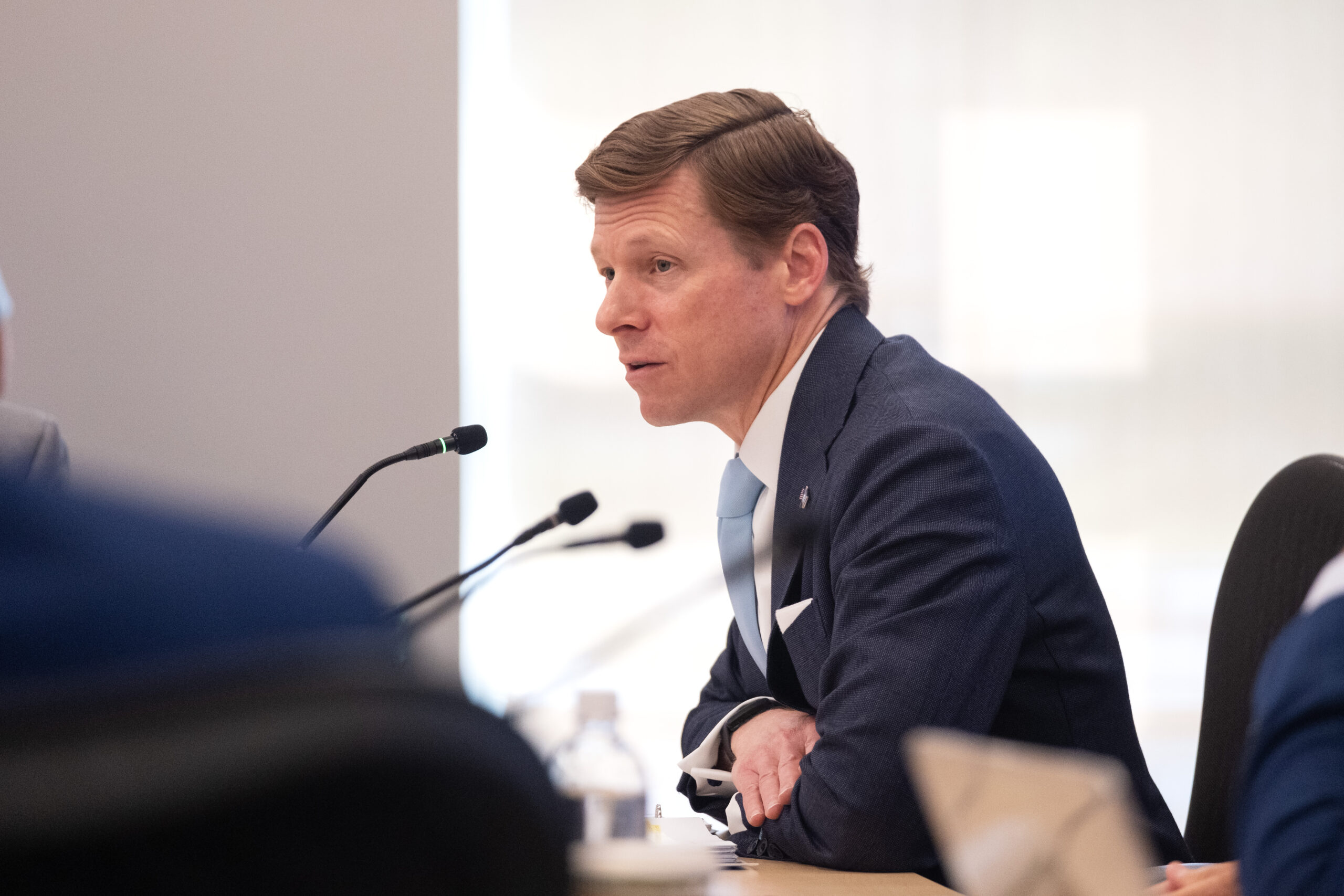The future of the UNC Center for Civil Rights remains uncertain after its power to act in litigation was stripped by the UNC System Board of Governors earlier this fall.
Mark Dorosin, the center’s managing attorney, was effectively relieved of his position in the move. He technically will maintain that post until January 12.
“In an effort to figure out how best to transition the advocacy work and continue the client-community representation away from UNC, we’re looking at a bunch of different options,” said Dorosin.
Those options include setting up a non-profit organization to serve as a placeholder for the center until they can join an already existing organization, either at the local or national level.
“The interim necessary step was to file the articles of incorporation for the Julius L. Chambers Center for Civil Rights, which I am proud and honored to see that that has now been established,” said Dorosin.
Dorosin ensures that despite the move, he and his colleague Elizabeth Haddix will continue their advocacy work.
“[Haddix] and I are committed to continuing Julius Chambers’ vision for direct advocacy and engagement in the struggle against race discrimination,” said Dorosin. “We’re going to continue to represent the communities and clients that we already have as well as hopefully expand that work.”
Despite Dorosin’s optimism, he said he knows the work is still ahead of him. He hopes to develop a long-term structure for the center in the next several weeks and continues to look for funds.
Dorosin said he also hopes to continue the center’s involvement with UNC students outside of their official affiliation with the law school.
“Wherever we end up, we want to have a pipeline of students who are interested in this work from UNC,” said Dorosin. “But also, no longer being at UNC means we’ll be able to provide those opportunities to students at other law schools.”
Dorosin hopes to work diligently to maintain the center’s relationships with other departments and resources at the university as well.
University officials have repeatedly expressed their support for the center and the work they have done.
The State Bar added salt to the wound in a letter last week claiming that the center should have never had the ability to provide legal services in the first place, since it operates under the umbrella of the university, which is not a corporation authorized to practice law.
Chair of the bar committee Alan Hicks wrote in the letter, as first reported by the News & Observer, “The Center, as a constituent component of the University and not a separate entity, is likewise not a corporation authorized to provide legal services. Therefore; the Committee voted to issue this Letter of Caution.”
The letter came after the State Bar received an anonymous complaint, according to Dorosin, that came after the Board of Governors voted to strip the center’s legislative power.
Dorosin called the letter “disappointing”.
“It was disappointing that the bar had this reaction given where we are with the center, given that we’re in the process of transitioning cases out,” said Dorosin.
For the immediate future, the civil rights center will continue as a research and academic center.
Related Stories
‹
![]()
After Early Firing, UNC Center for Civil Rights Attorneys Looking To New ProjectAs of last Thursday, managing attorney for the UNC Center for Civil Rights Mark Dorosin and his colleague Elizabeth Haddix were relieved of their positions by the university. This move came ahead of schedule, as the two were expecting to maintain their positions until January 12, but after a letter from the State Bar claimed […]
![]()
Judge Blocks Civil Rights Lawyers, UNC Students Efforts to Intervene in Silent Sam DealAn Orange County judge will not let students intervene in a settlement that gave a Confederate heritage group money to preserve a monument that protesters tore down at North Carolina’s flagship public university. Judge Allen Baddour ruled that the University of North Carolina students represented by the Lawyers’ Committee for Civil Rights Under Law lacked […]
![]()
First Victory for New Julius L. Chambers Center for Civil RightsThe predominately black community of Walnut Tree in Stokes County was annexed into the Town of Walnut Cove last month after a lawsuit alleging racial discrimination. The case was handled by the new Julius L. Chambers Center for Civil Rights, the non-profit legal center started by Mark Dorosin, who was fired from the UNC Center […]
![]()
Chapel Hill Officials Affirm Support for UNC Center for Civil RightsAn advocacy group that also serves as a training vehicle for law students at UNC-Chapel Hill may come screeching to a halt by order of university system officials. That group is the UNC Center for Civil Rights, whose mission was summarized in comments made by Director Ted Shaw to the Chapel Hill Town Council on […]
![]()
UNC BOG to Hold Center for Civil Rights Public HearingThe future of the UNC Center for Civil Rights is unclear, after a proposal was filed to ban its lawyers from litigation. The Educational Planning, Policies and Programs committee of the UNC Board of Governors debated the proposal in March, and requested reports from both UNC and North Carolina Central University before making its decision. […]
![]()
Managing Attorney Weighs in on UNC Center for Civil Rights' FutureThe future of the UNC Center for Civil Rights is unclear after a proposal was filed to ban lawyers at the center from litigation. The Educational Planning, Policies and Programs Committee of the board debated the proposal earlier this month, and has requested reports from UNC and North Carolina Central University before making a decision. […]

UNC to Moves to Condition 2, Cancels Monday Classes Ahead of Winter Storm FernUNC will suspend most campus operations starting Saturday afternoon — and cancel classes for Monday — based on the adverse forecast.

Chansky's Notebook: The New 'HoosRyan Odom’s Virginia has a more mysterious roster than Tony Bennett put together with starters and subs most casual fans don’t know.

UNC Women's Basketball Beats Georgia Tech to Record 3rd Straight WinA dominant rebounding advantage and a suffocating defensive performance helped UNC beat Georgia Tech 54-46 in Atlanta Thursday night and record its third straight ACC win. Road 𝗗𝗨𝗕 Secured!@WellsFargo x #GoHeels pic.twitter.com/aU2R7eVHfx — Carolina Women's Basketball (@uncwbb) January 23, 2026 UNC limited the Yellow Jackets to 31.7 percent shooting (18-57) for the game, doing just […]

Student Seating, Fan Experience, Wins: UNC Chancellor Comments on Dean Smith Center's FutureUNC Chancellor Lee Roberts addressed members of the media during the most recent meeting of the university’s Board of Trustees Thursday. During his comments, Roberts addressed speculation surrounding the future of the Dean Smith Center, home of the UNC men’s basketball program. Below are Roberts’ full comments on the arena: There is a commitment on […]
›





